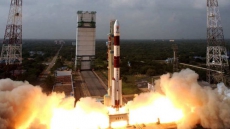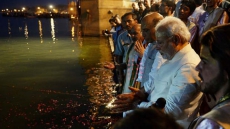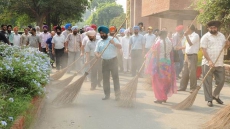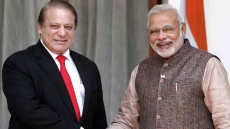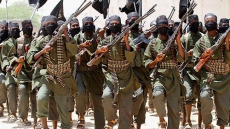India dismissed Pakistan's "unsolicited" comments on Kashmir at the UN, maintaining it was a part of India and asserting that free and fair elections were held in that state.
In his address to the UN General Assembly committee that deals with social, humanitarian and cultural affairs, India's Mayank Joshi Monday said free, fair and open elections were regularly held in Jammu and Kashmir at all levels.
Diyar Khan, a counsellor at Pakistan's UN Mission, Monday said his country regretted that the people of Jammu and Kashmir had been deprived of their right to self-determination. Self-determination did not lapse with the passage of time, he said. Nor could it be "set aside" by charges of terrorism.
Joshi dismissed as unsolicited Pakistan's comments about Kashmir and said they were factually incorrect. Free, fair and open elections were regularly held in that state at all levels, he said.
Exercising the right of reply, Pakistan's delegate escalated the issue, questioning New Delhi calling Kashmir a part of India and citing UN Security Council resolutions describing Kashmir a disputed territory. Regarding elections in Kashmir, he asserted that polls conducted by the Indian authorities could not be a substitute for a UN plebiscite.
The Indian delegate pointed out that the elections in Kashmir had been held under the scrutiny of international media, which had not faulted those elections.
Going for another round, the Pakistani representative of Pakistan claimed that the elections were held under what he said was foreign occupation and could not be impartial.
In reply, India's representative said that the Pakistani delegation's references to foreign occupation were out of context as Kashmir was a part of India.
Warning that nuclear terrorism threats were a pressing challenge to the global
community, India separately called for stronger national and international action to prevent terrorists getting hold of nuclear material.
Abhishek Singh, a first secretary in India's UN Mission, said Monday: "The threat of nuclear terrorism is one of the pressing challenges facing the international community."
"Responsible national action and effective international cooperation are therefore required for strengthening nuclear security to prevent vulnerable nuclear material falling into hands of non-state actors."
A vital amendment to an international convention on protecting nuclear materials coming into force would strengthen global efforts for nuclear safety, Singh said.
The amendment introduced in 2005 to the Convention on the Physical Protection of Nuclear Materials (CPPNM) would make it legally binding on nations to protect nuclear facilities and material while being used, stored or transported. It would also expand international cooperation to recover stolen or smuggled nuclear material.
The amendment, which requires the acceptance of two-thirds of the 151 nations that are parties to the convention, has been has been languishing with approvals by only 81 countries.
Singh asked the International Atomic Energy (IAEA) "to continue its efforts to promote early entry into force of the amendment".
Participating in the discussion on the IAEA, Pakistan, which has not yet accepted the amendment, sought to give assurances about safeguarding its nuclear facilities and materials.
Khalil Hashmi, a minister in Pakistan's UN Mission, said, it has "deployed radiation detection mechanisms at several exit and entry points to prevent illicit trafficking of radioactive and nuclear materials".
"Pakistan attaches highest importance to nuclear security because it is directly linked to our national security," he asserted listing what he said were the "five pillars" of Islamabad's nuclear security: "A strong command and control system led by the National Command Authority; an integrated intelligence system; a rigorous regulatory regime; comprehensive export control regime and active international cooperation."
These appeared to be aimed at assuaging the main international fears about Pakistan's nuclear program and arsenal.
Abdul Qadeer Khan, it's top atomic scientist, ran a network that provided nuclear technology to Iran and North Korea. And, on the security front, at least three cases of terrorists attacking nuclear weapons-related facilities in Pakistan have been documented.
Harvard University's Belford Center said in a 2010 report, Pakistan "faces a greater threat from Islamic extremists seeking nuclear weapons than any other nuclear stockpile on earth".
